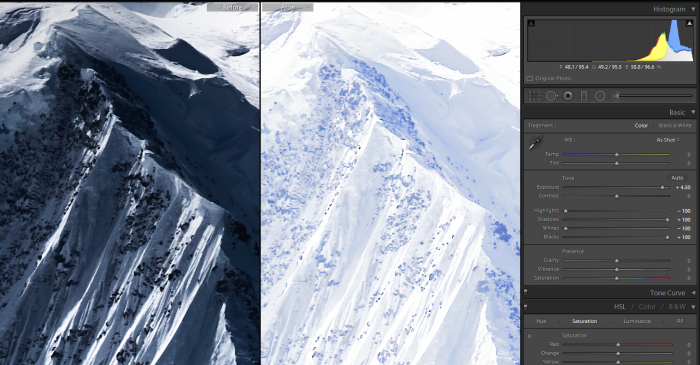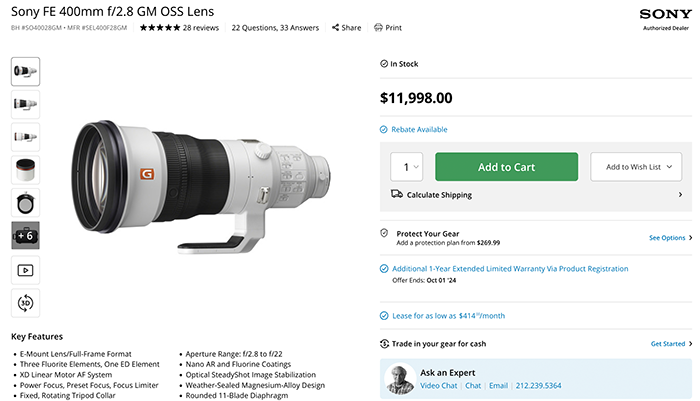Phase One XF 100MP uses similar A7rII sensor tech. First short image test impressions.
Today Phase One has announced the XF 101 megapixel back. The CMOS sensor was developed by Sony and uses a similar [shoplink 43671 ebay]Sony A7RII[/shoplink] sensor design. Phase One says this is a “Full Frame” sensor. What they mean is that it has the real field-of view size of 53.7 x 40.4mm. It means unlike previous Phase One backs there is no crop.

Original Phase One 101 MP file (left) and 4.5 stop overexposure (right). Image courtesy by Ori Cohen
Our reader Ori Cohen made a short test with the files available for download at Phase One’s website:
“The XF 100MP boasts at being the “ultimate camera system”, powered by the world’s first 100MP sony sensor. Phase One generously gave us a few TIF sample files to inspect, and they are simply stunning. This much detail is every photographer’s dream, but it comes at a high cost of not just money, but also processing power. My system can handle huge files, but editing a 500MB TIF demands more than an I7 and 32GB of memory. I was excited to see that one of the files was under-exposed. The image in question is the dramatic mountain that was shot at ISO100, and its histogram is leaning to the left, with the help of LR I recovered the shadows and blacks in order to see if there was any noise in the shadows. In fact, the majority of the image’s pixels are dark blue\gray. Recovery of the shadows and blacks to 100% did not show any noisy pixels. In a second attempt to force the noise to appear, I pushed the “exposure” slider by +4.5 stops, and there was still no noise! obviously the highlights and whites were blown, but with a small amount of highlights and whites recovery they stayed within the histogram. The only reason I did not add +5 FULL stops of exposure was because the highlights and whites recovery sliders’ range is too narrow for this 16 bit file and can’t push the over exposed pixels to the left of the histogram. Although this observation was done at the optimal ISO, as a comparison I could not recover a similarly under-exposed A99 RAW file without seeing noise at ISO 100. I believe that this camera can recover shadows by more than 4.5 stops without showing noise artifacts, but in order to do that Adobe needs to give us the ability to dial in more than 5 stops in each direction, and extend the shadow/darks/highlights/whites recovery range.”


